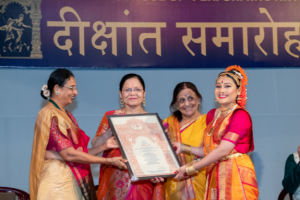Kuchipudi is one of the major forms of Indian Classical Dances, originated from a village named Kuchipudi in the state of Andhra Pradesh. I did my Arangetram (debut on-stage performance of a former student of Indian classical dance) in Kuchipudi on 14th April 2019 along with my mother and my sister, after eight years of training, including the last six months of intensive training (6th October to 14th April). This CAS experience fulfilled my activity strand.
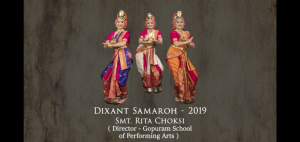
LO 1, 2:
My Intensive training for Kuchipudi has been one of the toughest and most challenging journeys by far. Managing 4 hours of practice daily with school and its submissions, I had surely never imagined this to be my cup of tea. Before I received this training, I was a big procrastinator and used to panic about every deadline, all submissions.
My anxiety and nervousness were my biggest weaknesses that I needed to overcome at any cost, as all of it was visible on my face while I used to dance. Due to this, and also my resistance in opening up to a large extent impacted my expressions. Expressions are one of the main things that judge one’s performance, and especially in Indian classical dance. My teacher was strict, but she understood my personality and helped me through it. I needed to match up to my mother’s and my sister’s quality of expressions. It took me a long time to get rid of my anxiety, but I could finally sail through. Overcoming this challenge in my dance, helped me a lot in my academics and other aspects of life as well. I have been so much more calm and compost about my assignments, deadlines or any other crisis ever since I broke out of my comfort zone. I knew I succeeded in my challenge when after my Arangetram, out of all the compliments I received, the maximum were about my expressions. I knew I had reached out to my audience.
I had always known that my footwork was my strength. And I also had a better stamina than my co dancers. This strength enhanced my dance and my teacher too was motivated to add some complicated steps because I could manage to do them.
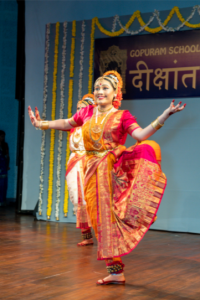
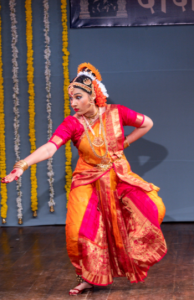
LO 4
Commitment and perseverance can be called synonyms of Indian classical dance. It has an extremely demanding nature, and skipping even a day of practice has a visible effect on the dance. Commitment and perseverance was very necessary in our training firstly due to the requirement of a high stamina. We were supposed to perform for 3 hours on stage, and this can’t be possible without building up high stamina with practice. Skipping even a day of practice would surely get our stamina down, we could feel it. Secondly, to reach a high level of perfection, our teacher used to make us note down our mistakes each day so that we could go through them before our next day of practice. So, we were also expected to be highly focused and not think about any other activities or social outings with friends during our training.
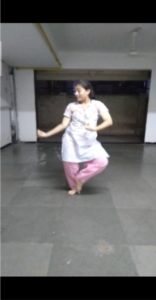
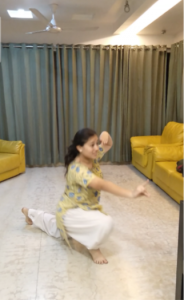
Showing commitment wasn’t a very difficult task for me until my school trip came up. The school educational trip is the most awaited event of the year, and not going on the trip was unimaginable for me. However, if I wanted to achieve this, I couldn’t attend the trip. This was my true test. I didn’t go on the trip, and I regretted too. But on the day of my Arangetram, it all felt worth it. Everything paid off, and I hold no regrets ever since then, because to get something, we have to let go of something too.
LO 5
As I mentioned before, I did my arangetram along with my sister and my mother. The three of us working together towards our goal certainly helped us achieve our goal fully and smoothly. My mother joined in for arangetram much later than me and my sister, this made it difficult for all three of us, because she was lagging behind, and so we couldn’t lean further unless she reaches upto what we had already learned. However, because we were together, we helped each other cope up not only in class, but even at home. We had to keep a record of what mistakes we make in our dance daily, and try and make sure that we improve them the next day. At home, we would sit and discuss what mistakes we had made individually. Through this, we would also realise that we were making some of those same errors but it didn’t strike us.
Working collaboratively enhanced our dance to a large extent, and we were highly praised for our coordination.
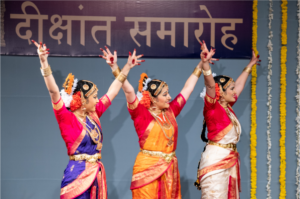
LO 6
Indian culture is one of the most prestigious cultures around the globe, however some of its elements, such as the Indian classical dance forms, are losing its significance and identity in today’s world. Through my arangetram, I not only get the feeling of being rooted to my culture, but I might also have inspired someone from the audience to take up this artform, further preserving the Indian culture. We also have this tradition in our dancing school wherein our teacher makes us take a pledge on the day of Arangetram which is about contributing to Indian classical dance and helping to preserve it. I genuinely wish to follow my pledge.
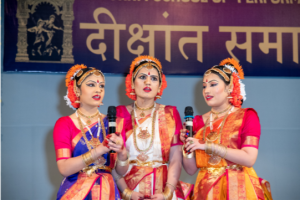
In conclusion, this experience has taught me life lessons and most importantly developed skills such as focus, concentration, and determination. The learning I have gained from this CAS experience will help me do better academically as well as in my career further in life.
I have also decided to further give my learning back to the society, so I now assist my teacher to take classes as well, twice a week for an hour. This makes me feel proud and satisfied about giving it back to the society.
